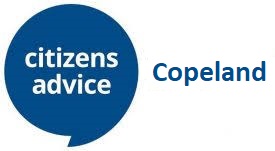Money Confidence
Select advice topic

A guide for students moving into a private rented house
If you’re moving into a private rented house, here’s 6 things you need to check off your list…
1. Checked my landlord has protected my deposit
If you have an assured shorthold tenancy (you probably do), your deposit must be protected in a tenancy deposit scheme. The scheme keeps your money safe and makes sure you get back what you’re owed at the end of your tenancy. Your deposit has to be protected even if someone else paid it for you.
2. Got a copy of my home’s electrical and gas safety check reports
By law, your landlord has to make sure your home meets electrical and gas safety standards. The gas safety check has to be done every 12 months and the electrical safety check every 5 years. They have to give you a copy of the certificate.
3. Read and understood my tenancy agreement
Make sure you understand what’s in your tenancy agreement. Check for things like if there’s a break clause, where you can end your tenancy early and if bills are included in the rent.

4. Discussed with my flatmates how we will split and pay for the bills
If only your name is on the bill, then you’re legally responsible to pay the whole bill — so it’s a good idea to have everyone’s name on there, so you’re all equally responsible. If one person doesn’t pay their share, speak to your supplier as they may give you more time.
There are some companies who will combine all your bills for you — this is called ‘all inclusive bills’ or ‘bill splitting’. These companies can be helpful but you’ll have to pay for the service so it will be more expensive. Before signing up to anything make sure you shop around and compare the price between using a company and paying the bills yourself — you could also ask your student union or other students for recommendations.
5. Told my local council that we’re students
If everyone in your house is a full-time university or college student, you’ll be exempt from paying council tax (this means you won’t have to pay it). You’ll need to let your council know and they’ll ask for proof — such as a certificate from your university or college.
6. Told the energy supplier I’ve moved in and taken meter readings
If you don’t pay your landlord for energy (check your agreement), when you move into your house, you’ll need to:
- Let the supplier know you’ve moved in
- Take meter readings on the day you moved in and submit these to the supplier

